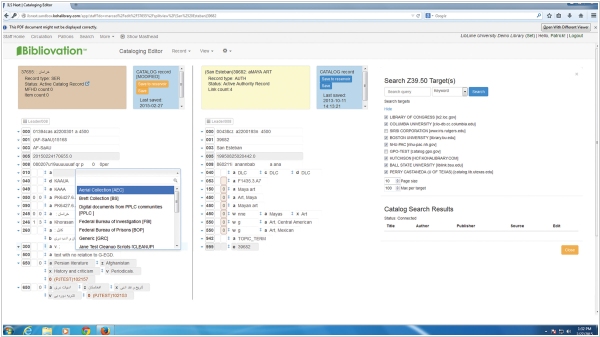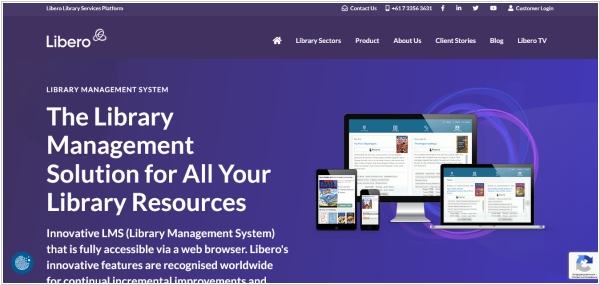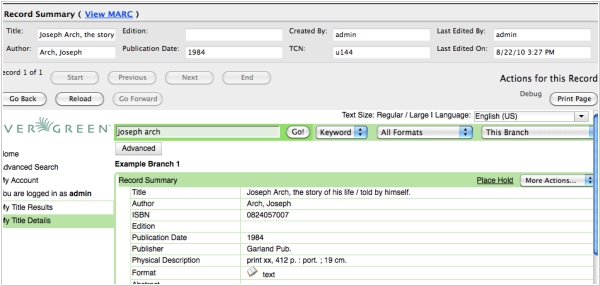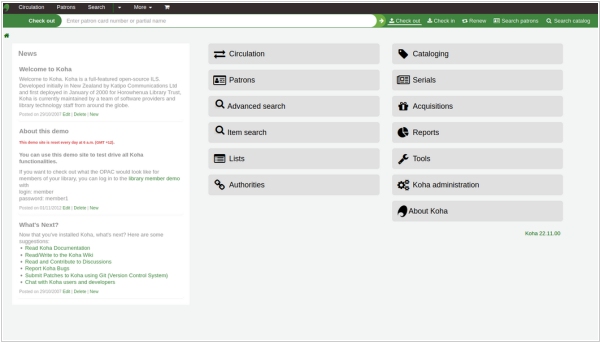Top 10: Small Business Libarary software
July 30, 2023 | Author: Maria Lin
Small Business Library software caters to the unique needs of smaller enterprises seeking efficient ways to organize and manage their knowledge resources. This user-friendly software provides a cost-effective solution for small businesses to catalog and access their digital assets, including documents, presentations, manuals, and other relevant materials. With its intuitive search and indexing capabilities, employees can quickly find and retrieve essential information, boosting productivity and streamlining decision-making processes. Additionally, the software often comes with collaboration features, enabling teams to share and collaborate on projects seamlessly. With its focus on scalability and ease of implementation, Small Business Library software empowers these enterprises to harness the power of organized knowledge, driving innovation and growth within their operations while staying adaptable to their evolving needs.
Some of the most popular Small Business Libarary software are listed below.
See also: Top 10 Library Management Software
Some of the most popular Small Business Libarary software are listed below.
See also: Top 10 Library Management Software
2023. Bibliovation 7.2 gets online payment options

LibLime introduces the latest version of its ILS software Bibliovation 7.2. It is entirely web-based, granting researchers, library staff, and system administrators access through web browsers. By leveraging the FedRAMP authorized IaaS and PaaS certification from Amazon AWS Cloud, along with a special security authorization from the US Department of Defense's cybersecurity experts for SaaS, Bibliovation provides libraries with a highly secure and cost-effective hosting solution. It supports various standards such as MARC21, Dublin Core, RDA, and geotagging, enabling libraries to manage both physical and digital content on a single Rest API-based platform. The Bibliovation circulation subsystem is purpose-built to facilitate shared union catalog solutions, granting individual consortium members significant autonomy, including ownership of local bibliographic records, item records, and patron records. Bibliovation MARC cataloging allows for local control over cataloging rules that can complement or surpass AACR2 and RDA rulesets. The acquisitions subsystem in Bibliovation is EDI-compliant, featuring a multi-tiered fund hierarchy and supporting the import of csv data converted into the MARC21 format for streamlined acquisition workflows. Additionally, Bibliovation now includes online payment options and comprehensive NCIP support. With hosted production, reporting, and test systems, libraries have the necessary capabilities and control to effectively support their daily operations.
2022. Libero to offer libraries more security

Libero has introduced several enhancements to its cloud-based library management system. These include options for default passwords and improved security measures for library members, courtesy reminder emails that provide comprehensive renewal details in one place, and the ability to store and utilize preferred names for members while maintaining consistency in official correspondence. Libraries now have the flexibility to simplify the initial access of members to online services by setting the surname or telephone numbers as the default password. Additionally, libraries can enforce password changes after the first login to the WebOPAC, ensuring enhanced security. These updates aim to enhance user experience, ensure data security, and promote inclusivity within library services.
2021. Evergreen adds acquisitions administration, holdings maintenance

The release of Evergreen 3.8 is announced by The Evergreen Community. Evergreen is a highly-scalable software designed for libraries to facilitate the discovery of library materials by patrons and assist in managing, cataloging, and circulating those materials, regardless of the library's size or complexity. This release brings numerous new features and enhancements, such as Angular rewrites of several staff interfaces including acquisitions administration, holdings maintenance, item attributes editor, patron triggered events log, and item triggered events log. Additionally, it introduces a case-insensitive option for browsing headings, a new interface for editing notes attached to bibliographic records, improvements to the staff interface for browsing bib records attached to a heading, and consolidation of patron notes, messages, alert messages, and standing penalties into a unified notes interface. Other additions include settings for determining item value based on item price and acquisition cost, enhancements to override event dialogs in checkout and renewal interfaces, the ability to edit the patron photo URL during registration, settings for hold stalling based on pickup library, settings for default pickup location for staff-placed hold requests, utilization of a newer Stripe API for credit payments in the public catalog, display of cover images in My Account pages for items checked out, check out history, holds, and holds history, and new reporting views such as item statistics and Dewey call number blocks and ranges.
2021. Koha improves Accounting and Transfers moduls

Koha, has released a major update that will be useful for small business and public libraries. The focus of this update was on refactoring the accounting code, with particular attention given to enhancing the 'Point of Sale' and 'Cash Management' features. These enhancements aim to improve the user interface by providing better access to cash-up functionality and facilitating auditing processes. Furthermore, efforts have been made to ensure that all actions related to account lines follow proper double-entry accounting methods, thereby establishing links between income and debts. A significant amount of work has been dedicated to refactoring the transfers system, resulting in improved maintainability and setting the stage for future enhancements. Notably, transfers can now be queued, and a priority system has been implemented for different mechanisms that trigger a transfer. Moreover, an audit trail has been implemented to enable easier debugging in the future. This has proven instrumental in resolving several long-standing bugs and addressing edge cases in the transfers process.

